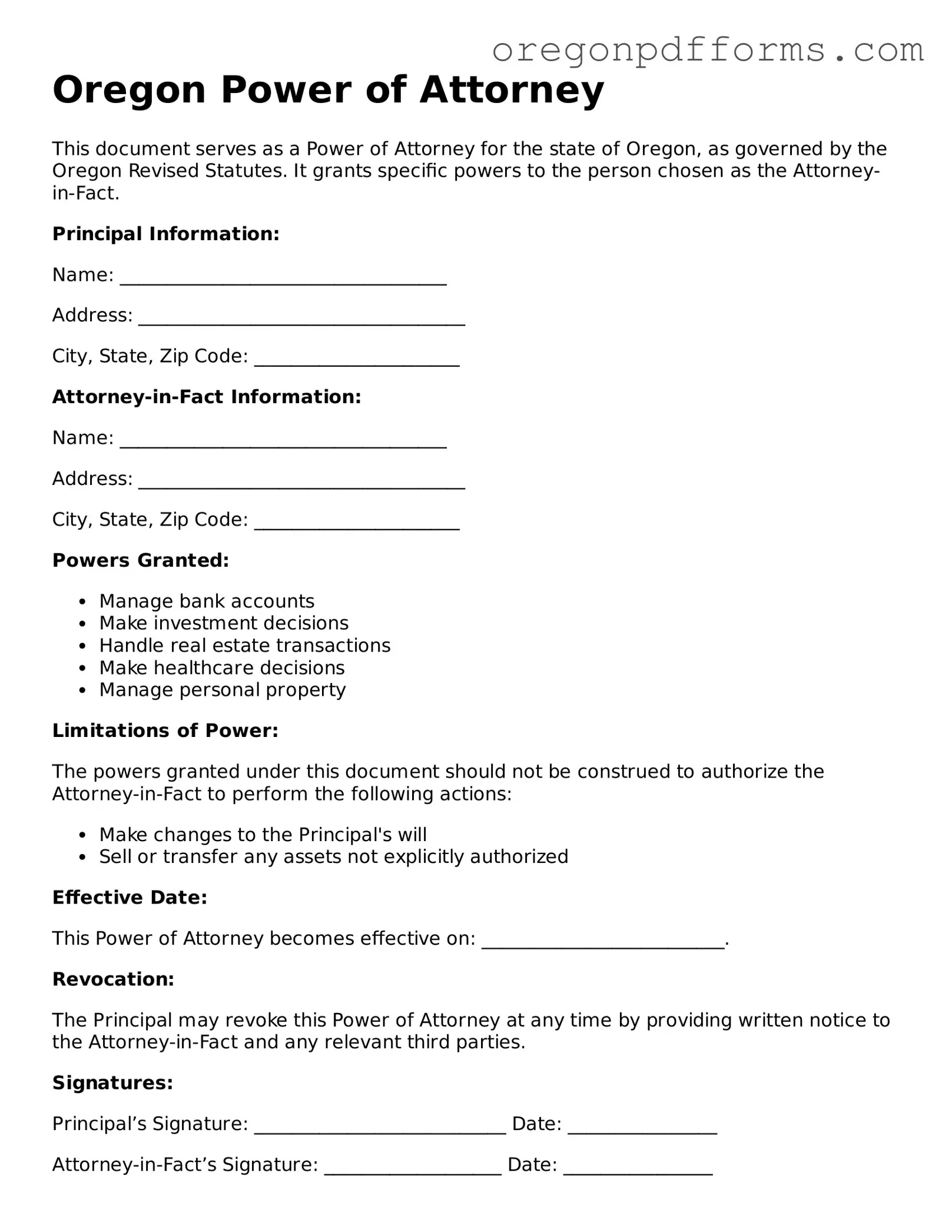Valid Power of Attorney Document for Oregon
The Oregon Power of Attorney form is a legal document that allows one person to authorize another to act on their behalf in financial or health-related matters. This form provides the designated individual, known as the agent, with the authority to make decisions and manage affairs when the principal is unable to do so. Understanding how this form works is crucial for anyone considering its use in Oregon.
Open My Power of Attorney

Valid Power of Attorney Document for Oregon
Open My Power of Attorney

Open My Power of Attorney
or
Get PDF
A few steps left to finish this form
Complete Power of Attorney online with easy edits and saving.